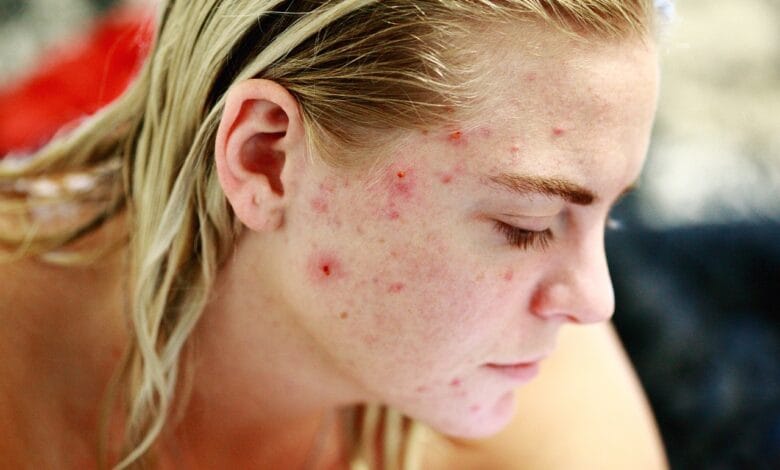Acne is a skin condition that affects up to 80% of people at some point in their lives. It is caused by clogged hair follicles with oil and dead skin cells, which leads to the appearance of pimples, blackheads and whiteheads. Let us learn about the most important causes of acne and the best methods. To treat it.
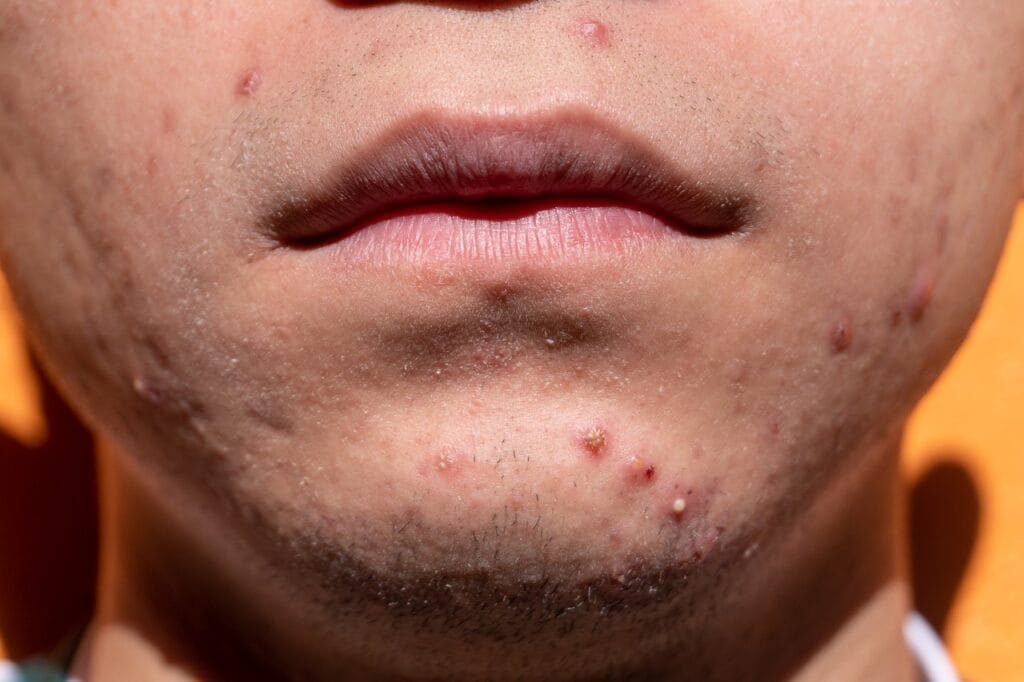
What are the causes of acne?
There are several main causes of acne; Summarized in:
- Proteins: Protein mining is a major cause of acne. During puberty, androgens outline, leading to increased skin production.
- Bacteria: A bacteria called Cutibacterium Acnes lives on the skin, however, in people due to youth, these bacteria multiply greatly and feed on excess skin, which leads to this.
- Hair follicles: When dead skin cells and excess oil build up in hair follicles, they can clog them, leading to pimples.
- The following factors: Acne can be caused, with people with a family history being more involved in it.
- Medications: Some medications, such as corticosteroids and lithium, can dull acne as a side effect.
The most dangerous types of acne
One of the causes of acne is cystic acne, which is the most dangerous type of acne and is characterized by large, deep, painful pimples that can leave permanent scars.
Abscesses develop when hair follicles become clogged with oil, dead skin cells, and bacteria. These substances build up inside the follicle, causing it to swell and form a pus-filled sac. Abscesses can be very painful and can take a long time to heal; Therefore, early treatment of the causes of cystic acne is important to prevent the appearance of permanent scars.
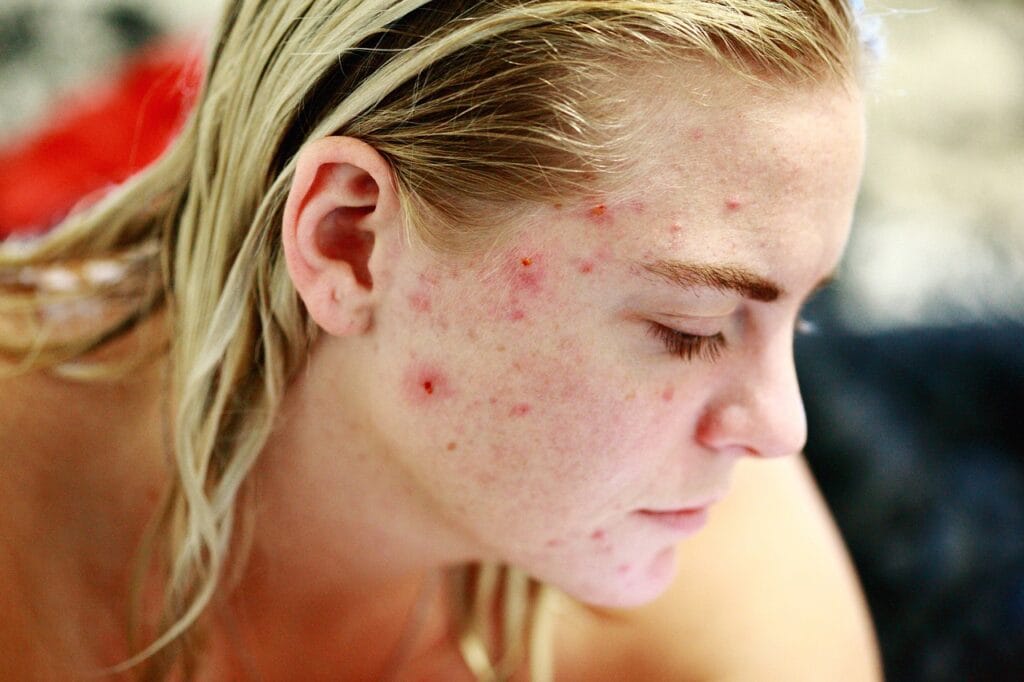
Causes of acne after the age of 25
Acne after the age of 25 can be caused by several reasons, including:
- Hormonal changes: Hormonal changes associated with the menstrual cycle, pregnancy, or menopause can be causes of acne.
- Stress: Stress can lead to increased cortisol production; It is a hormone that stimulates oil production in the skin.
- Skin care products: Some skin care products can clog pores and lead to increased acne.
- Medications: Some medications are among the causes of acne, such as corticosteroids or lithium, and acne appears as a side effect.
- Genetic factors: Acne can be hereditary, with people with a family history of it being more likely to develop it, including acne after the age of 25.
- Lifestyle: Unhealthy diet, lack of sleep, and smoking can affect skin health and increase the risk of acne.
In addition, acne that appears after age 25 may be caused by an underlying condition, such as:
- Polycystic ovary syndrome (PCOS): This is a hormonal condition that can lead to acne, weight gain, and excess hair growth.
- High androgen levels: Increased levels of androgen hormones, such as testosterone, can lead to increased oil production in the skin and acne.
- Adrenal gland disease: Some adrenal gland diseases can lead to increased production of androgen hormones, leading to acne.
If your acne appears after the age of 25, it is important to consult a dermatologist to determine the cause and get appropriate treatment.
How to prevent acne?
To answer the question: How do you prevent acne? You can follow several methods from the following steps:
Skin care routine:
- Wash your face twice daily with a gentle, oil-free cleanser.
- Use an alcohol-free toner to help balance your skin’s pH.
- Moisturize your skin daily with a light, oil-free moisturizer.
- Use sunscreen daily, even in the winter.
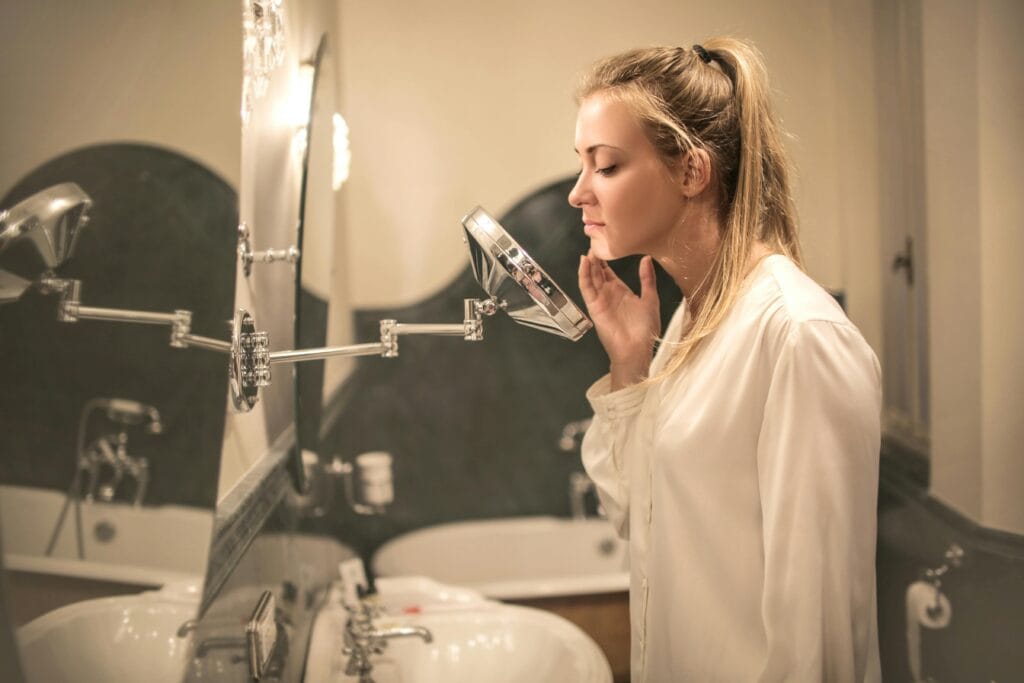
Lifestyle:
- Follow a healthy diet rich in fruits, vegetables, and whole grains.
- drink a lot of water.
- Get enough sleep.
- Exercise regularly.
- Reduce stress; Stress is one of the most important causes of acne.
Avoid acne irritants:
- Avoid touching or putting pressure on your face.
- Wash pillowcases and towels regularly.
- Use non-irritating, fragrance-free skin care products.
- Avoid using greasy or heavy hair care products on your face, which are causes of acne.
Acne Treatment:
- Use topical medications containing benzoyl peroxide, salicylic acid, or a retinoid to kill bacteria and reduce inflammation.
- Talk to your dermatologist about oral medications, such as antibiotics or isotretinoin, for severe acne.
- Try light therapies, such as blue light therapy or intense pulsed light therapy, to reduce bacteria and inflammation.
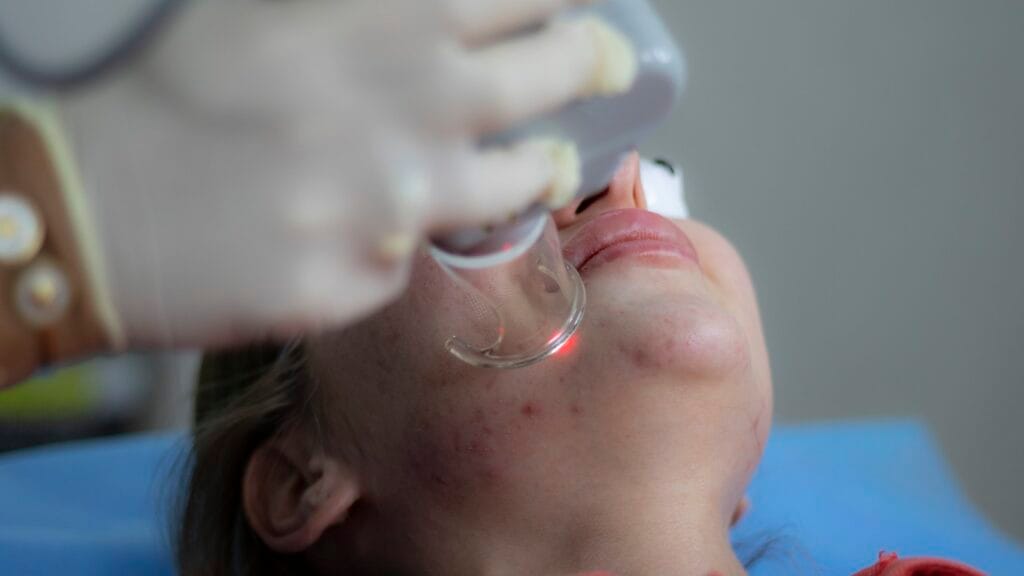
Additional tips:
- Don’t pick at your pimples, as this can make them worse or scarred.
- Use non-greasy and oil-free cosmetics.
- Clean your makeup brushes regularly.
- Do not share towels or skin care products with others.
- If you suffer from cystic acne or hormonal acne, consult a dermatologist for appropriate treatment.
In conclusion, by understanding the causes of acne and following a good skin care routine and healthy lifestyle, you can reduce the appearance of acne and improve your overall skin health. If you suffer from severe or persistent acne, consult a dermatologist for appropriate treatment.
Remember that acne is a manageable condition, and it shouldn’t limit your confidence or happiness. By following the tips in this article, you can successfully manage acne and get clear, healthy skin.
read more :

